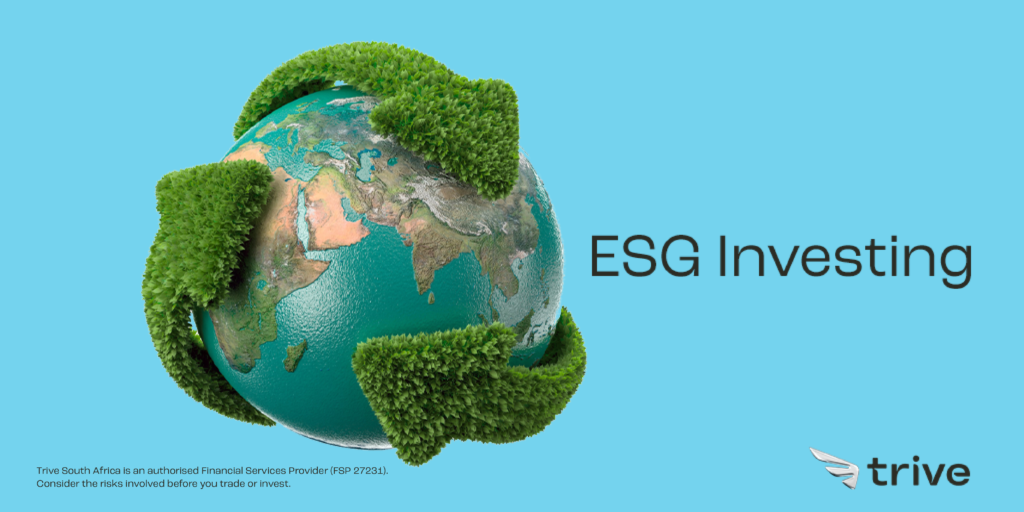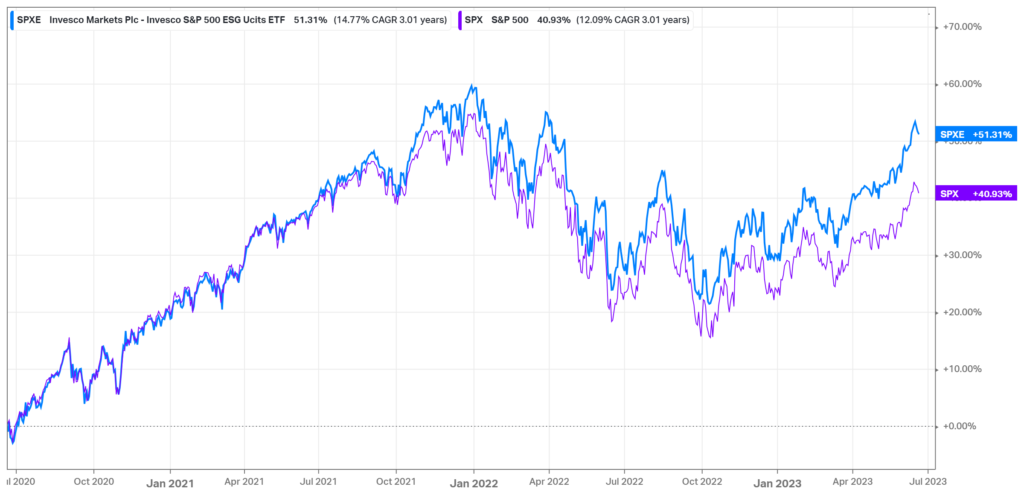
In a world where financial performance is no longer the sole measure of success, an additional step has risen in the process. Environmental, Social, and Governance (ESG) investing has gained popularity as part of a paradigm shift in the investment landscape away from the traditional investment model toward a more holistic approach that does not neglect the effect of the investment on the broader environment.
ESG are non-financial factors that do not form part of mandatory financial reporting. However, with its growing popularity, institutions like the Sustainability Accounting Standards Board (SASB) have been working to develop standards to incorporate these factors into the investment decision-making process. So, what does ESG investing entail?
Firstly, environmental factors include the company’s impact on climate change and other considerations such as pollution, resource conservation, and energy use. Secondly, social considerations include the company’s policy on diversity, equity, and inclusion (DEI), considering factors such as customer satisfaction, gender and diversity, human rights, and labour standards. Finally, governance focuses on the company’s leadership, audit structure, board composition, etc. By considering all of these factors, investors could create some clarity around the company’s decision-making process and sustainability in the long run, to ensure that the investment aligns with their personal beliefs.
ESG investing is a new avenue that socially aware investors are exploring in order to align their values with their investments. By investing in companies with optimistic ESG principles, investors can ensure that they achieve growth that is not at the expense of the well-being of broader society. However, in doing so, investors run the risk of reducing their investment universe. For example, the tobacco industry and several industrial stocks are generally avoided by ESG investors, even though these industries perform exceptionally well in certain macroeconomic conditions. Therefore, an ESG strategy involves a trade-off, where the investor needs to decide whether they are willing to sacrifice potentially lucrative returns in securities that do not necessarily align with their values.
So, how do investors know which companies have positive ESG ratings? Financial firms such as Morningstar and MSCI have developed a ranking system based on several ESG criteria. For example, the MSCI ESG Rating has a scale from CCC to AAA, with CCC and B ratings given to companies that lag their industry in managing ESG risks. BB, BBB, and A ratings are given to companies with a mixed track record against their industry, while the most ESG-efficient companies will be given a AA or AAA rating. Many companies also attach an ESG report in their investor relations, providing a breakdown of proactive measures the company is taking to ensure a favourable ESG rating.
There are multiple ways to get exposure to an ESG investment strategy. These include ETFs that track an index or funds focusing on ESG investments that avoid companies that fall short in meeting their objectives. It has often been thought that higher ESG metrics come with an opportunity cost of lower returns. Still, these strategies have recently proven that it is possible to get exposure to market-beating returns while aligning your portfolio with your personal values. The graph below shows the S&P 500 index returns compared to an S&P 500 ESG ETF (LSE: SPXE). While these returns are highly correlated, the ESG ETF has shown promise over the last three years, with a 51.31% return compared to the 40.93% of the S&P 500.

ESG investing is on the ascent as investors grow increasingly aware of global challenges, including, among others, climate change, unethical corporate behaviour, and social inequality. As such, investors have started integrating ESG considerations into their decision-making process, shifting away from the traditional analytic process to support businesses with a runway for long-term sustainable returns while aligning their portfolios with their personal beliefs and values. ESG investing allows investors not only to generate healthy returns on their investments but to contribute to a more sustainable future.
Sources: CFA Institute, S&P Global, MSCI.com, Investopedia
Disclaimer: Trive South Africa (Pty) Ltd, Registration number 2005/011130/07, and an Authorised Financial Services Provider in terms of the Financial Advisory and Intermediary Services Act 2002 (FSP No. 27231). Any analysis/data/opinion contained herein are for informational purposes only and should not be considered advice or a recommendation to invest in any security. The content herein was created using proprietary strategies based on parameters that may include price, time, economic events, liquidity, risk, and macro and cyclical analysis. Securities involve a degree of risk and are volatile instruments. Market and economic conditions are subject to sudden change, which may have a material impact on the outcome of financial instruments and may not be suitable for all investors. When trading or investing in securities or alternative products, the value of the product can increase or decrease meaning your investment can increase or decrease in value. Past performance is not an indication of future performance. Trive South Africa (Pty) Ltd, and its employees assume no liability for any loss or damage (direct, indirect, consequential, or inconsequential) that may be suffered from using or relying on the information contained herein. Please consider the risks involved before you trade or invest.




